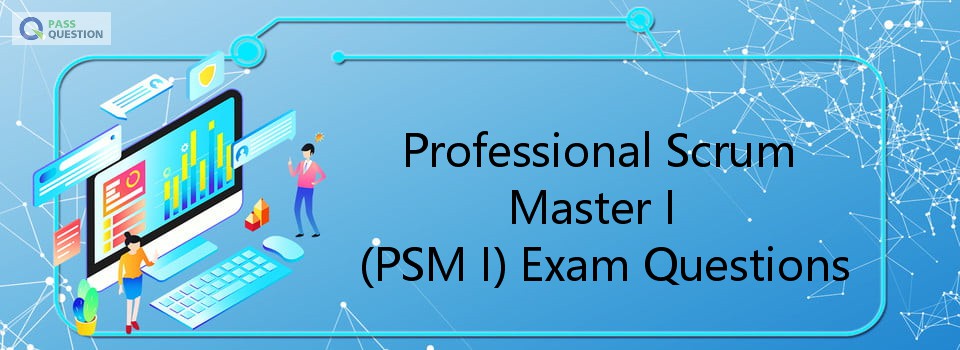Professional Scrum Master I (PSM I) Exam Questions
Professional Scrum Master I (PSM I) is perfect for people who want to understand the basics of Scrum thoroughly.If you want to get PSM I Certification, PassQuestion provides you with the latest and most accurate Professional Scrum Master I (PSM I) Exam Questions. It is so helpful for you to prepare this high qualified exam. Studying with PSM I Questions and Answers guarantees your successes at your first attempt.You are guaranteed to pass your PSM I Certification exam with ease and confidence.

Professional Scrum Master I (PSM I) Exam Overview
Professional Scrum Master I (PSM I) is the standard certification to prove your knowledge and understand of Scrum and the role of the Scrum Master.The Professional Scrum MasterTM level I (PSM I) assessment is available to anyone who wishes to validate his or her depth of knowledge of the PictureScrum framework and its application. Those who pass the assessment will receive the industry recognized PSM I Certification to demonstrate their fundamental level of Scrum mastery.
PSM I Certification Exam Details
Fee: $150 USD per attempt
Passing score: 85%
Time limit: 60 minutes
Number of Questions: 80
Format: Multiple Choice, Multiple Answer and True/False
Language: English only
The PSM I Includes the Following Focus Areas:
Understanding and Applying the Scrum Framework
- Empiricism, Scrum Values, Roles, Events, Artifacts, Done
Developing People and Teams
- Self-Organizing Teams, Facilitation, Leadership Styles, Coaching and Mentoring
Managing Products with Agility
- Forecasting & Release Planning, Product Value, Product Backlog Management, Stakeholders & Customers
View Online Professional Scrum Master I (PSM I) Free Questions
1.When many Scrum Teams are working on the same product, should all of their increments be integrated every Sprint?
A. Yes, but only for Scrum Teams whose work has dependencies.
B. Yes, otherwise the Product Owners (and stakeholders) may not be able to accurately inspect what is done.
C. No, each Scrum Team stands alone.
D. No, that is far too hard and must be done in a hardening Sprint.
Answer: B
2.When can a Development Team cancel a Sprint?
A. It can’t. Only Product Owners can cancel Sprints.
B. When functional expectations are not well understood.
C. When the Product Owner is absent too often.
D. When the selected Product Backlog items for the Sprint become unachievable.
E. When a technical dependency cannot be resolved.
Answer: A
3.Which output from Sprint Planning provides the Development Team with a target and overarching direction for the Sprint?
A. The Sprint Backlog.
B. The Sprint Goal
C. The release plan.
D. Sprint Review minutes.
Answer: B
4.How should a Development Team deal with non-functional requirements?
A. Ensure every Increment meets them.
B. Make sure the release department understands these requirements, but it is not the Development Team’s responsibility.
C. Handle them during the Integration Sprint preceding the Release Sprint.
D. Assign them to the lead developers on the team.
Answer: A
5.When is a Sprint over?
A. When the Product Owner says it is done.
B. When all Product Backlog items meet their definition of “Done”.
C. When all the tasks are completed.
D. When the time-box expires.
Answer: D
6.Scrum has a role called “Project Manager”.
A. True
B. False
Answer: B
- TOP 50 Exam Questions
-
Exam
All copyrights reserved 2025 PassQuestion NETWORK CO.,LIMITED. All Rights Reserved.

